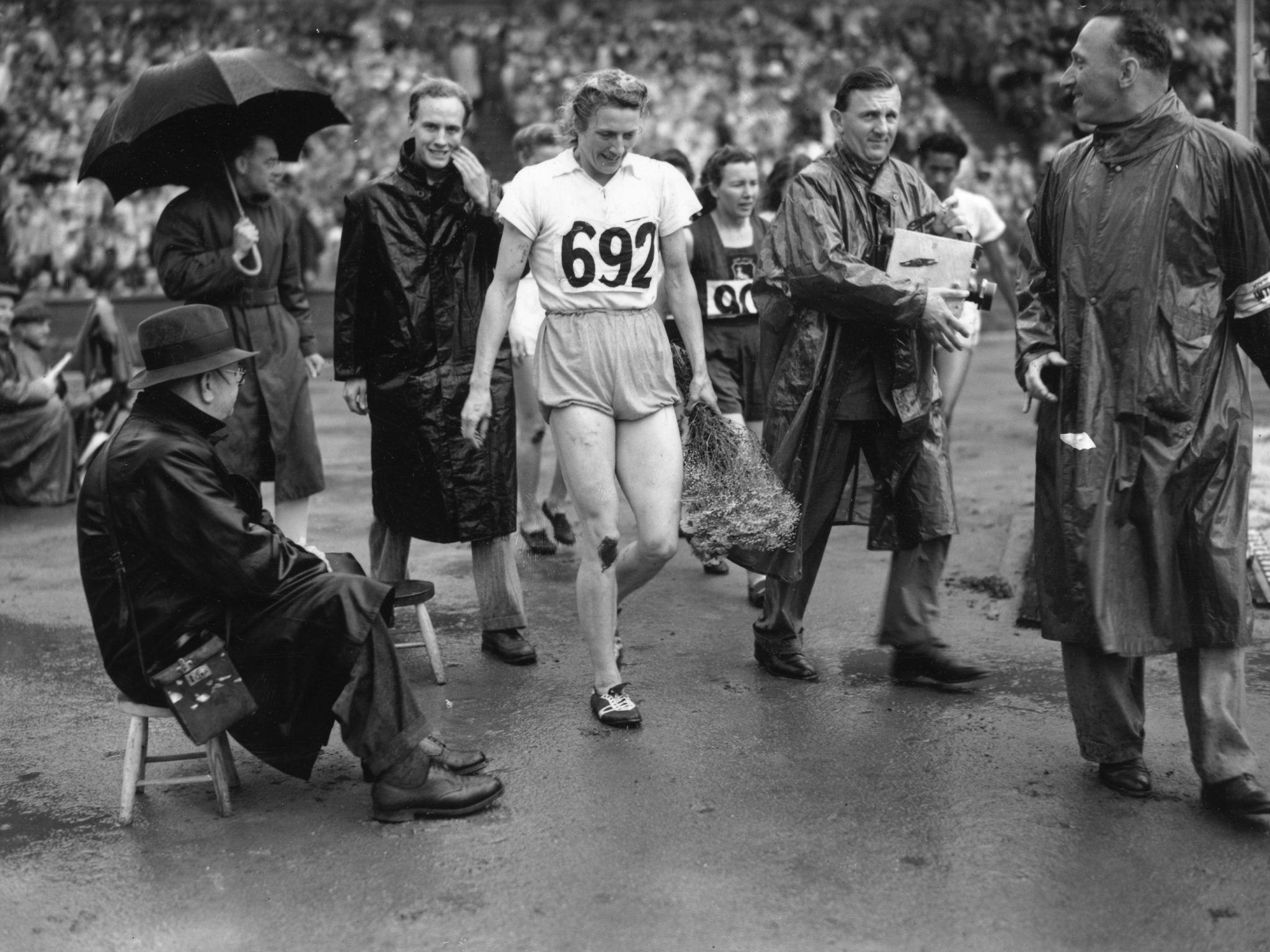A tale that highlights how far equality at the Olympics still has to run
Fanny Blankers-Koen of the Netherlands won four events at the 1948 Olympics, facing down her critics, writes David Harding


Sometimes a story is so shocking it could only be true.
No one could make up a tale so absurd as a women’s team competing in 2021 being forced to pay a fine for choosing to wear shorts rather than bikini bottoms, as players of the Norwegian volleyball team have just done. A fine that the singer Pink has offered to pay.
The history of sport is also a history of sexism. And the Olympics have long been part of that ignoble tradition.
From excluding women from the first modern Olympics in 1896, through to the remarks of Yoshiro Mori, former head of the Tokyo 2020 organising committee, who resigned in February after saying that talkative women tended to make meetings “drag on too long”.
One of the most celebrated cases enjoys its anniversary on Thursday. On 29 July 1948 the London Olympics began, the first in the post-Second World War era.
The event was famous for taken place during food rationing, competitors had to bring their own towels and there was even a gold medal awarded for art.
But it was mostly famous for one thing – a supreme female athlete who not only overcame her rivals but pure sexism.
Fanny Blankers-Koen of the Netherlands was, to the horror of some, a housewife with two children and, astonishingly, also three months’ pregnant at the time of the Olympics.
After deciding to compete, Blankers-Koen was told by critics – who even took the trouble to write to her – that her place was at home with her children. When she arrived in London the British team manager said the 30-year-old was too old to compete.
Despite being the supreme athlete of the games, Blankers-Koen was described in reports as running “like she was chasing the kids out of the pantry”. She was given the nickname “The Flying Housewife”. So depressed by some of the criticism, she almost quit the games.
Instead, she faced up to those who questioned her place and won four gold medals, the 100m, the 200m, the 80m hurdles and the 4x100m relay.
There were only nine women’s events in 1948, Blankers-Koen won four of them. When she returned home she was given a bike by the city of Amsterdam so she “did not need to run so much”. She was to be voted the best female athlete of the century in 1999.
On the 73rd anniversary of Blankers-Koen’s astonishing story, it seems remarkable that sport is bogged down in the same arguments.
Yours,
David Harding,
International editor






Join our commenting forum
Join thought-provoking conversations, follow other Independent readers and see their replies
Comments